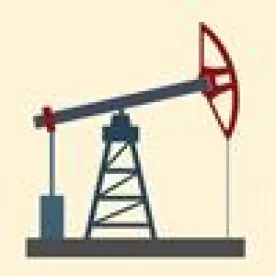The Pennsylvania Department of Environmental Protection’s efforts to develop new environmental performance standards for unconventional shale gas operations, pursuant to mandates in PA Act 13, contained some collateral impacts for conventional operators in the Commonwealth. As the result of some recent legislative action, some relief is being proposed for these conventional operators.
First, some background. As previously reported at this site, the DEP in 2012 embarked on a comprehensive effort to revise its rules pertaining to the shale gas operations. These efforts would revise most of the existing standards ranging from environmental information and performance to water supply impacts and replacement; to residual waste disposal and impoundment designs to temporary pipelines. These proposed rules were published for comment in December, 2013 in the Pennsylvania Bulletin and received heavy scrutiny by the industry and numerous other parties. DEP reportedly received over 25,000 comments on the proposed rules. DEP, as of this writing, is still in the process of preparing its required Comment and Response document and the expectation is that the final rules may not be ready until late 2015 or early 2016.
While these proposed rules place new, and in many cases significant, burdens on Pennsylvania’s shale gas producers, Pennsylvania’s conventional producers were likewise going to be impacted by these new rules. While some provisions of the rules were clearly meant for and only applicable to horizontal shale gas development operations, other provisions had a broader applicability, whether intentional or unintentional, to all natural gas development. Given the minimal operating margins associated these low volume wells and with the low natural gas prices expected for the foreseeable future, the Commonwealth’s conventional operators began making a strong case for some relief. These operators effectively argued that conventional operations, with a 150 year history in Pennsylvania, had been and were adequately regulated without the additional mandates imposed by Act 13. They noted that neither the size nor method of developing conventional gas wells approached the level of impact associated with horizontal shale gas development, and they should not, by direct or broad implication, be regulated in the same manner as the unconventional operations.
An outreach campaign by groups and associations representing conventional producers was successful in garnering legislative support. Bills were introduced in the both Pennsylvania House of Representatives (HB 2350) and Senate (SB1378) to address their concerns However, HB 278, the budget’s fiscal code bill, picked up language from both bills and contained, as part of its instructions on how DEP was to spend its appropriations, a directive that DEP develop separate rules for conventional operations. This directive requires DEP to recognize the distinct differences between conventional and unconventional operations in current and future rules.
DEP has a huge task ahead of them in complying with this directive but they have begun the process of revising its Chapter 78 proposed rule package to initiate the process. At the September 25, 2014 meeting of the Oil and Gas Technical Advisory Board the DEP provided the Board with its plan for Chapter 78. The original Chapter 78 rule package will now be bifurcated with Chapter 78 addressing only conventional operations and Chapter 78a addressing all unconventional operations. Additionally, DEP revealed to the Board some of the distinct changes they are making to Chapter 78 to comply with their legislative directive. These include:
-
Temporary pipeline and gathering line rules will not apply to conventional operations
-
The site security requirements will not apply to conventional sites
-
The inside pit slope requirements will be steepened for conventional sites
-
Buried tank requirements will be lessened for conventional sites
DEP noted that a more extensive list is being developed and will be made available once finalized. These rules will be subject to additional public review and comment and one can expect them to be heavily scrutinized by the conventional industry.




 />i
/>i
